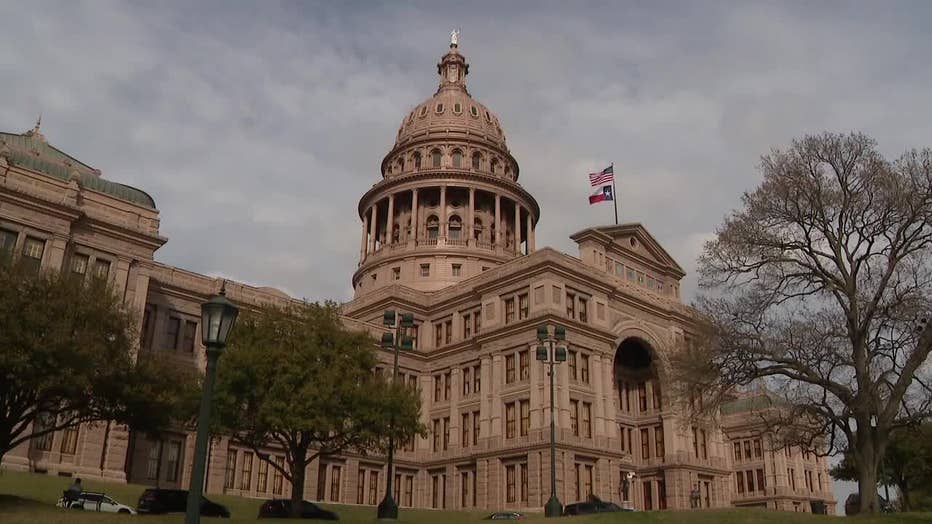Texas Senate sends school choice bill to Gov. Abbott's desk
School choice passes House and tariff impact on Texas
The Texas House passed school choice legislation for the first time. The bill creates a $1 billion program to use public funds to pay for private schooling. It would be the largest program of its kind in the country. Then, the Texas Association of Business talks about the kind of jobs that will be brought back to the Lone Star State due to tariffs.
AUSTIN - Texas will soon be the largest state in the country with a private school choice program.
School choice legislation is officially headed to Governor Greg Abbott's desk.
The Texas Senate passed Senate Bill 2 by a party-line 19-12 vote on Thursday, despite a last-ditch effort to derail, or at least delay, the bill's final passage.
"School choice has come to Texas," said Lt. Gov. Patrick after the bill's passage.
Last Thursday, the House approved the bill 86-63.
Governor Greg Abbott, who has called school choice his top priority, is expected to sign the bill.
Texas school choice bill passes

Dig deeper:
Senate Bill 2 would create a program to establish education savings accounts that allow parents to use public funds to pay for private school tuition and other expenses.
In its first year, the program would be capped at $1 billion and used by up to 90,000 students, but it could grow to nearly $4.5 billion per year by 2030. The money can be used for private school tuition, as well as costs for home-schooling and virtual learning programs. Families could get up to $10,000 each year per student under the program, and a student with disabilities would be eligible for as much as $30,000 per year.
More than 30 states have some form of school choice bill, but Texas' will be the largest.
The bill had the support of President Donald Trump who spoke to Texas lawmakers by phone before a vote last week.
Proponents say the legislation gives parents options about where to send their children. They argue the competition would force public schools to improve.
Opponents say the education savings accounts will take money away from public schools and will not help low-income students. Some have called it "welfare for the wealthy," saying the money will be used by those who are already sending their children to private schools.
Efforts to derail school choice bill
There were tense exchanges during the final discussion on the bill in the Senate.
San Antonio Democrat Roland Gutierrez objected to a House amendment that requires school districts to provide special education assessments for all kids, regardless of whether they’re enrolled in the district.
Senator Gutierrez considered that change an new unfunded mandate, even though school districts collect property taxes from all residents within their bounders, whether not those property owners have school age kids. Gutierrez also objected to the House removal of a section that would have prevented state lawmakers from getting an ESA for their kids .
"We asked for a bill that didn't have the stain of that possible corruption. And yes, it would be corruption," said Gutierrez.
Another House amendment removed Senate language restricting the use of ESA money for online coursework, especially classes offered by out-of-state companies. Lubbock Republican Charles Perry noted new schools can't get the ESA money if they have not been in existence for two years, but also voiced concern SB 2 will promote the start-up of a lot more online companies.
"I want to run accounting of it. Because if it goes from 6,000 kids to 60,000 kids, we got a problem," said Perry.
Texas school choice fight
School choice and school funding approved
The controversial school choice plan pushed by Gov. Abbott won final approval in the Texas House. A teacher pay plan with more money for school districts also passed. But, both votes got sidetracked by a surprising morning meltdown.
The backstory:
Governor Greg Abbott has listed school choice as one of his top priorities for lawmakers, after it failed in four special sessions in 2023.
Abbott campaigned against Republicans who voted against education savings accounts in the 2024 primaries.
Last Thursday, the House bill was approved 86-63. Every Democrat and two Republicans, Dade Phelan and Gary VanDeaver, voted no.
Several other states have similar programs in place, but Texas' will be the largest in the country.
Last Wednesday, the Texas House also passed House Bill 2, which would provide $7.7 billion in funding for public schools.
The Source: Information in this article comes from the Texas Legislature, the Associated Press and past FOX reporting.

